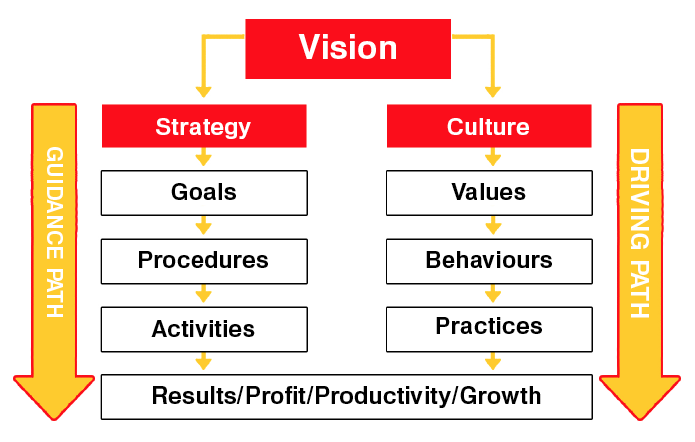More and more organisations have recognised the value of not just building a sound culture, but of building a culture of coaching that offers employees at all levels (not just executives and managers), the opportunity to grow their skills, and hence their value, and reach their professional goals as a way of improving themselves as well as the business.
 According to Manfred F.R. Kets de Vries in his book “The Hedgehog Effect” (2011), if your organisation can answer “yes” to the following four questions, it is recognised that your organisation, company or business is well on the way to having a coaching culture:
According to Manfred F.R. Kets de Vries in his book “The Hedgehog Effect” (2011), if your organisation can answer “yes” to the following four questions, it is recognised that your organisation, company or business is well on the way to having a coaching culture:
- relationships of interpersonal trust, self disclosure, and openness
- focus on self-awareness and personal development (prepared to assess their strengths and weaknesses)
- a preparedness to have courageous conversations
- a willingness to give clear and constructive feedback
Furthermore, the International Coach Federation (ICF) – in conjunction with the Human Capital Institute – created a composite index highlighting the critical success factors that were necessary to develop an environment of effective coaching. That composite index consisted of the following six criteria:
- strongly agree / agree that their organisation has a strong coaching culture

- strongly agree / agree that employees value coaching
- strongly agree / agree that senior executives value coaching
- coaching is a fixture in the organisation with a dedicated line item in the budget
- managers / leaders (and/or internal coach practitioners) spend above-average time on weekly coaching activities
- managers / leaders (and/or internal coach practitioners) received accredited coach training
In short, the ICF research found that organisations with a strong coaching culture shared a number of attributes including:
- both senior executives and employees value coaching
- coaching is a fixture in the organisation with a dedicated line item appearing in the budget
- managers and leaders using coaching skills and/or internal coach practitioners spend above-average time on weekly coaching activities
- managers receive accredited coach training
There is a definite sense therefore, in which a coaching culture provides the stability and framework for all interactions within the organisation. It serves as a mechanism that defines what’s acceptable in behaviour (what we do or say) as well as the kind of activities that reinforce the values of the organisation. Such a culture will have the kind of environment that includes continuous learning, the ready exchange of knowledge and information, peer coaching, and self-development, all of which are actively encouraged and facilitated at all levels.
This sort of organisation typically has a strong corporate identity; their employees are committed to and proud of the company or business. They all have a strong sense of ownership and being part of the organisation. All individuals within the organisation understand the goals of the company or business and importantly, understand their personal contribution that is needed in order to achieve the company goals and direction. They have all learned to value feedback and use it efficiently and effectively; they build high-performance teams with strong motivation and a love of learning. They know the value of courageous or crucial conversations; in other words, they do not put things off all, hope that problems will simply go away, or let difficult issues fester.
What are the Benefits of a Coaching Culture?
It’s important for employers to understand why a culture of coaching is so vital to a company’s success. Kets de Vries’ (2011) research indicated that companies and businesses that have indeed, developed a coaching culture report the following:
- significantly reduced staff turnover

- increased productivity
- greater happiness and satisfaction at work
He states that in such companies, the individuals “benefit from more open communication, a more compassionate attitude, less stress, more interest in their talent development, and a greater sense of well-being” (p. 88).
He goes on to say that communication skills such as listening, enquiry, and exploration or drilling down are ingrained within the organisation’s culture. A coaching culture also contributes to a sense of mutual ownership, better networking, more effective leadership practices, increased commitment, all of which creates better results across the whole organisation. In organisations and businesses with a coaching culture, people are continually discovering how they can create their own reality, perhaps reinvent themselves, and how they can change the organisation.
The global survey with 545 individuals (but mainly HR) conducted by the ICF in 2014 (“Building a Coaching Culture”) across a range of industries concluded the following:
- 65% of individuals from organisations with strong coaching cultures, rate themselves as being “highly engaged,” compared to 52% from organisations without strong coaching cultures
- In terms of financial impact, 60% of individuals from organisations with strong coaching cultures, report their 2013 revenue to be above their peer group, compared to 41% from all other companies
In other words, coaching is more than just a way to increase employees’ skills and competencies, it can have a long-lasting systemic impact on an organisation’s ability to retain talent as well as a positive impact on its financial sustainability.
What are the Barriers to Implementing a Coaching Culture?
Although companies often give lip service to wanting to implement a strong coaching culture, the reality is that certain factors tend to work against such a culture being introduced. These factors include:
- a lack of time
- the limited ability to measure the ROI of coaching
- lack of funding
- tying coaching back to the business strategy
- compensation not being tied to coaching for managers
- lack of accountability
A Word of Caution

STRATEGY Vs CULTURE
However, it is also important to recognise that a coaching culture alone is not enough to drive change, improve performance, increase job satisfaction or lift the level of commitment in an organisation.
As Peter Drucker so aptly put it: “Culture eats strategy for breakfast.“
Indeed, a coaching culture needs to be used in conjunction with a viable overall business strategy.
Coaching should always be part of the process of simply making work more effective and productive. In other words, coaching is not simply another item on the to-do list for HR; it should be seen as a way of reducing each individual’s workload, professionally and personally developing them as individuals, and as a way of allowing them to become more efficient and effective.
A coaching culture therefore along with with a sound business strategy allows the duality of these two facets to drive growth and profit. The leadership in any company or business therefore needs to see that coaching is both a support and a solution; not just the latest fad in human resources or management.
